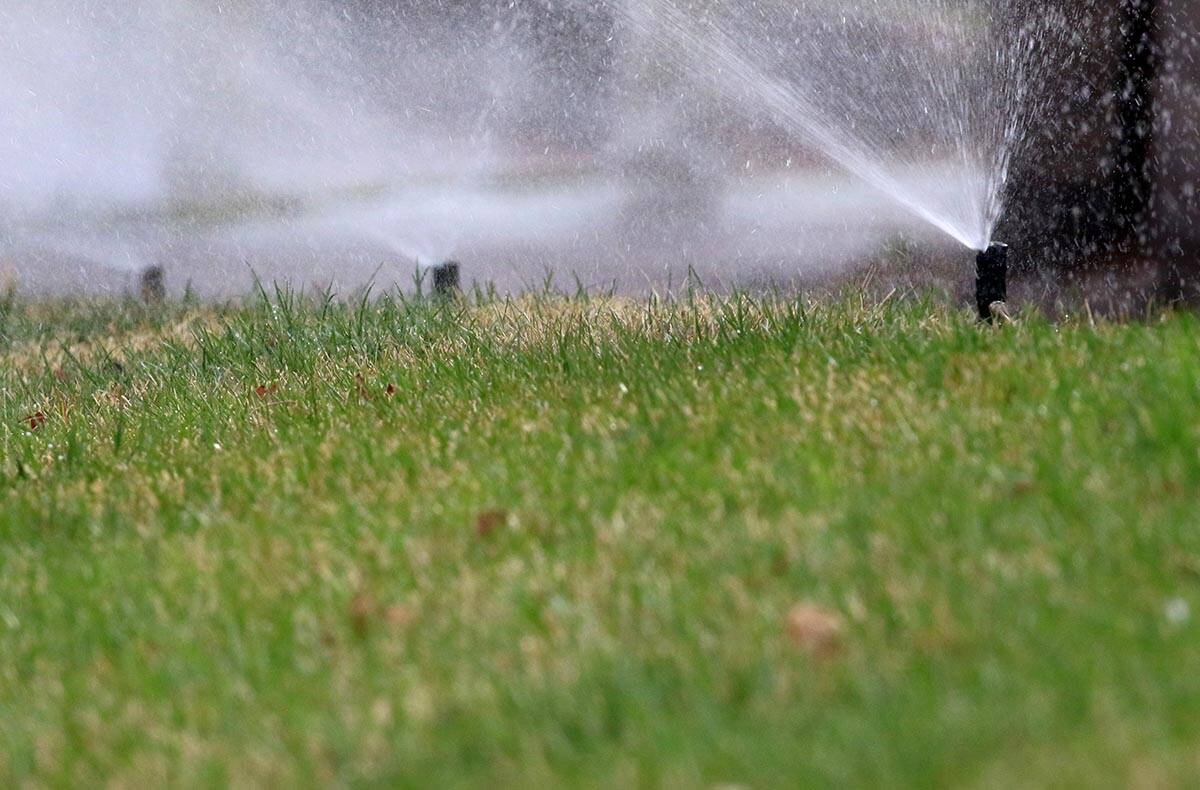SNWA raises Water Smart Landscape Rebate

NOTE: The Southern Nevada Water Authority has temporarily increased the Water Smart Landscapes Rebate for homeowners from $3 to $5 per square foot of grass upgraded to water-efficient landscaping for the rest of 2024.
Qualifying homeowners will receive $5 for each square foot of grass they convert up to the first 10,000 square feet to drip-irrigated, desert-adapted plants and trees and $3.50 for each additional square foot. Conversions must be completed by the end of 2024 to receive the increased incentive.
Please note, businesses, municipalities, community associations and multifamily properties remain eligible for the current $3-per-foot incentive, which will decrease to $2 per square foot for nonfunctional, decorative grass beginning in 2025.
To apply for the program, and for program conditions and criteria, visit snwa.com.
Q: I’m a fairly new homeowners association board member for my community here in Las Vegas and came across a column you wrote for the Las Vegas Review-Journal regarding whether a board member who sells his or her property can continue to serve on the HOA board.
Recently, one of our board members filed a quit claim on her unit, transferring ownership to a trust in her daughter’s name, with her daughter as the sole trustee. I don’t see the board member’s name anywhere in the trust or quit claim document. If she is no longer the owner of the property, per the quit claim transfer even though she still lives in the unit, can the board member continue to serve and represent the HOA?
I’m hoping you could share some insight on this matter because it’s all fairly new to me. Also, if there are other HOA resources that are helpful for new board members such as myself, I would appreciate any direction in that regard.
Thank you so much for any guidance.
A: Nevada Revised Statutes 116.31034 (1) states that board members are to be unit owners. As to officers of an association, unless your governing documents state otherwise, officers are not required to be unit owners.
Under subsection 14, an officer, employee, agent or director of a corporate owner of a unit, a trustee or designated beneficiary of a trust that owns a unit, a partnership that owns a unit, a member or manager of a limited-liability company that owns a unit and a fiduciary of an estate that owns a unit can serve as an officer or board member. The person shall file proof in the records of the association that they meet one of the requirements.
You may have to conduct another review of the trust.
CORRECTION: A question was asked in a previous column about whether an association is required by law to pay the postage on the return envelopes for ballots, whether for board election or removal election. The response was yes, citing NRS 116.31034 (15a), which stated that the secretary or other office specified in the bylaws of the association shall cause a secret ballot and a return envelope to be sent, prepaid by U.S. mail, to the mailing address of each unit within the association or to any other mailing address designated in writing by the unit’s owner.
That response was not the correct one. In July 2009, the Real Estate Division obtained an advisory opinion that concluded that there is no statutory requirement that an association provide for or pay for postage for any return ballot.
The opinion stated that in reading the law in plain language, the phrase “prepaid by United States mail is stating how a secret ballot and return envelope must be sent to each owner within the community or to the mailing address designated in writing by the unit’s owner. This means the envelope containing the secret ballot and return envelope may not be sent by the association by way of cash on delivery and may not be left at the doorstep of the units.
A unit’s owner is not required to mail the ballot and return envelope back to the association. For the vote to be counted, the owner must simply return the secret written ballot to the association within the specific time. It is, however, inferred that the secret written ballot is returned in a sealed envelope.
The statute says that the secret written ballots must be opened and counted at a meeting of the association.
The opinion ended by stating that an association, however, may decide to provide for or pay return postage for a ballot at the board’s sole discretion.
At the very bottom of the advisory opinion in bold print, it states that the opinion represents the views of the division and its general interpretation of the provisions addressed. It is not a rule, regulation or final legal determination.
The facts in a specific case could cause a different outcome.
In my opinion, during the next legislative session of 2025, NRS 116.31034 (15a) and NRS 116.31036 (3a) should be clarified and rewritten.
Barbara Holland, CPM, is an author, educator and expert witness on real estate issues pertaining to management and brokerage. Questions may be sent to holland744o@gmail.com.